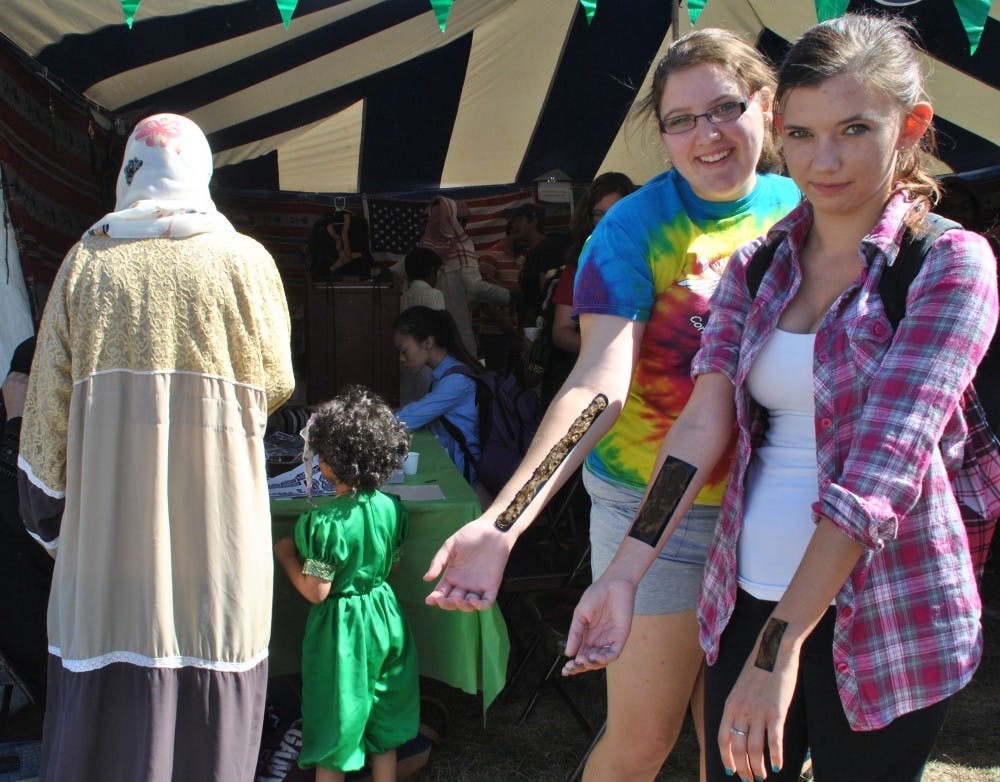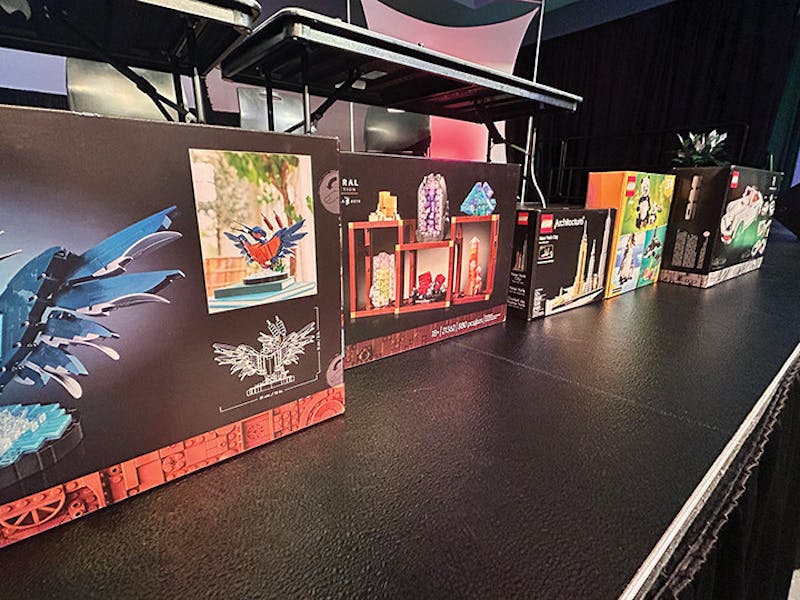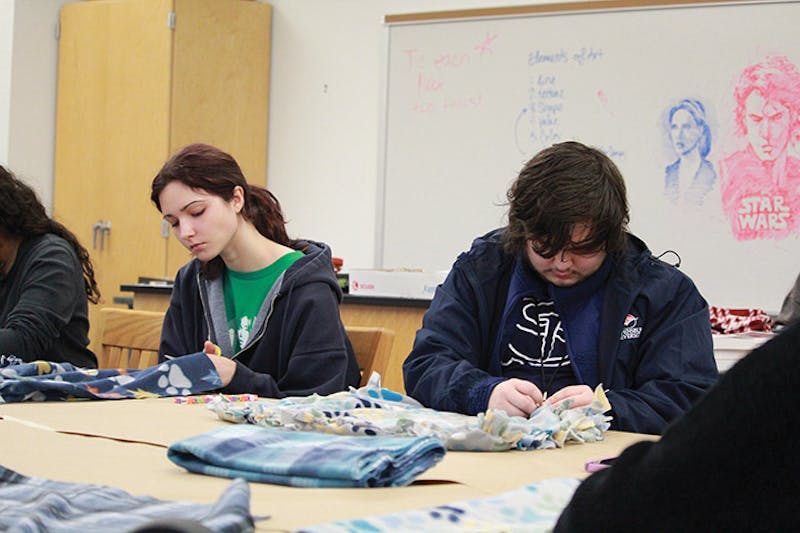Like a reed swaying in a current, Mohammed Alhrbi, graduate student and member of the Saudi Arabian Club, swayed to the Saudi music — his white, floor-length robe brighter than his broad smile under the hot sun Thursday afternoon.
In celebration of Saudi Arabia’s National Day, which was on Wednesday, Sept. 23, Shippensburg University’s Saudi Arabian Club held a free event in the quad that included pastries, dates, tea and coffee. People could also learn how to write in Arabic or get a henna tattoo.
Alhrbi rocked back and forth as he waved his arms to the music and lifted his head in the air to release a high-pitch sound as if to call others to join him and let the sun melt their bodies into the rhythms and beats.
The dance is called “Smari,” Alhrbi said. For him, Alhrbi said dancing is a way to socialize and it also drew people to stop by the tent.
“I’m trying to make everyone happy here … By dancing, [students] see something special,” Alhrbi said.
When people think of Saudi Arabia, they think of deserts and camels, but there are big cities and much more to the culture than people realize, Alhrbi said.
Inside the blue-and-white tent was a tri-fold display that provided information about Saudi Arabia.
“A lot of people think that we live in tents and stuff and when they see our displays with big cities they’re blown away,” said junior Hanna Al-Hamdani, Saudi Arabian club member.
Al-Hamdani lived in Saudi Arabia’s capital, Riyadh, until she was 18 and then moved to Shippensburg two years ago to live with her husband, who was attending school at Shippensburg University at the time.
Graduate student Nsreen Almslamani said that Saudi Arabia is different from the snippet of her culture displayed on the quad Thursday. In Saudi Arabia, there is not just one culture, but many sub-cultures that practice religion and interact and dress differently.
Almslamani was the only woman who wore her black hair spiraling around her shoulders — free from a hijab, the head scarf that the other women wore.
“I’m not pure Saudi,” Almslamani said.
Almslamani’s grandfather was Italian, her grandmother was Yemen, and the western part of Saudi Arabia where she grew up was greatly influenced by Belgian culture, she said.
However, regardless of her cultural differences, she is still accepted by other Saudi Arabians as “one of them,” Almslamani said.
Freshman Bridget Guyer said that she has been a foreign exchange student and loves learning about other cultures.
“If I have the opportunity to learn about another culture I’m going to do it,” Guyer said, her forearm covered with henna, a mud-like paste that had to dry in the sun before chipping off to reveal a temporary tattoo.
Guyer’s friend, freshman Ashleigh Castaldi, said she researched henna tattoos before attending the Saudi Arabian Club’s event.
“They’re never two alike, and they’re always intricate,” Castaldi said.
Castaldi said it felt like the skin on her forearms was tightening as the henna hardened to a light brown desert ground, webbed with small fissures.
However, Saudi Arabian culture is rooted in more than just henna tattoos.
As someone who has lived in both Saudi Arabia and America, Al-Hamdani said that what she loves most about her culture is family.
“I like our celebrations, how we celebrate,” Al-Hamdani said.
In Saudi Arabia, Al-Hamdani said it is not just family that is invited to parties but neighbors and the neighbors’ family members, too.
Students might have been able to glimpse a sense of that Saudi Arabian family under the blue and white striped tent set up on the quad Thursday as the men gathered and danced just outside the tent in a cluster and the women kept off to the shade where they lathered henna paste onto students’ forearms. Children, belonging to the Saudi Arabian Club members, wove in and out of knees, dancing with the men as if each were a father or an uncle.
Almslamani said that if there is one thing she hopes students walk away knowing is that Saudi Arabians are good, easy-going people who are always there to support others.
“If I have a trouble [other Saudi Arabians] will not leave me alone. If anyone has a trouble, someone will be there and help them,” Almslamani said.




The Slate welcomes thoughtful discussion on all of our stories, but please keep comments civil and on-topic. Read our full guidelines here.